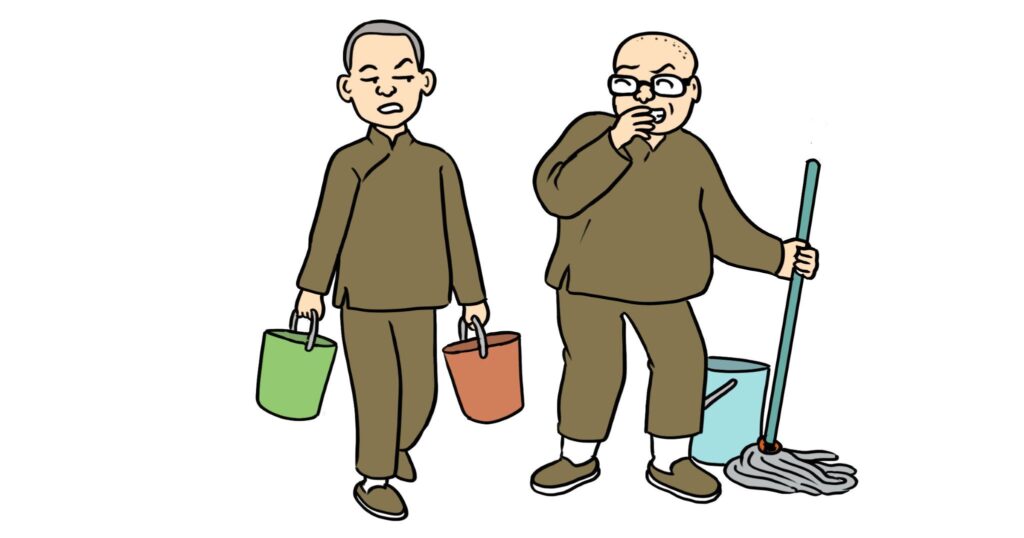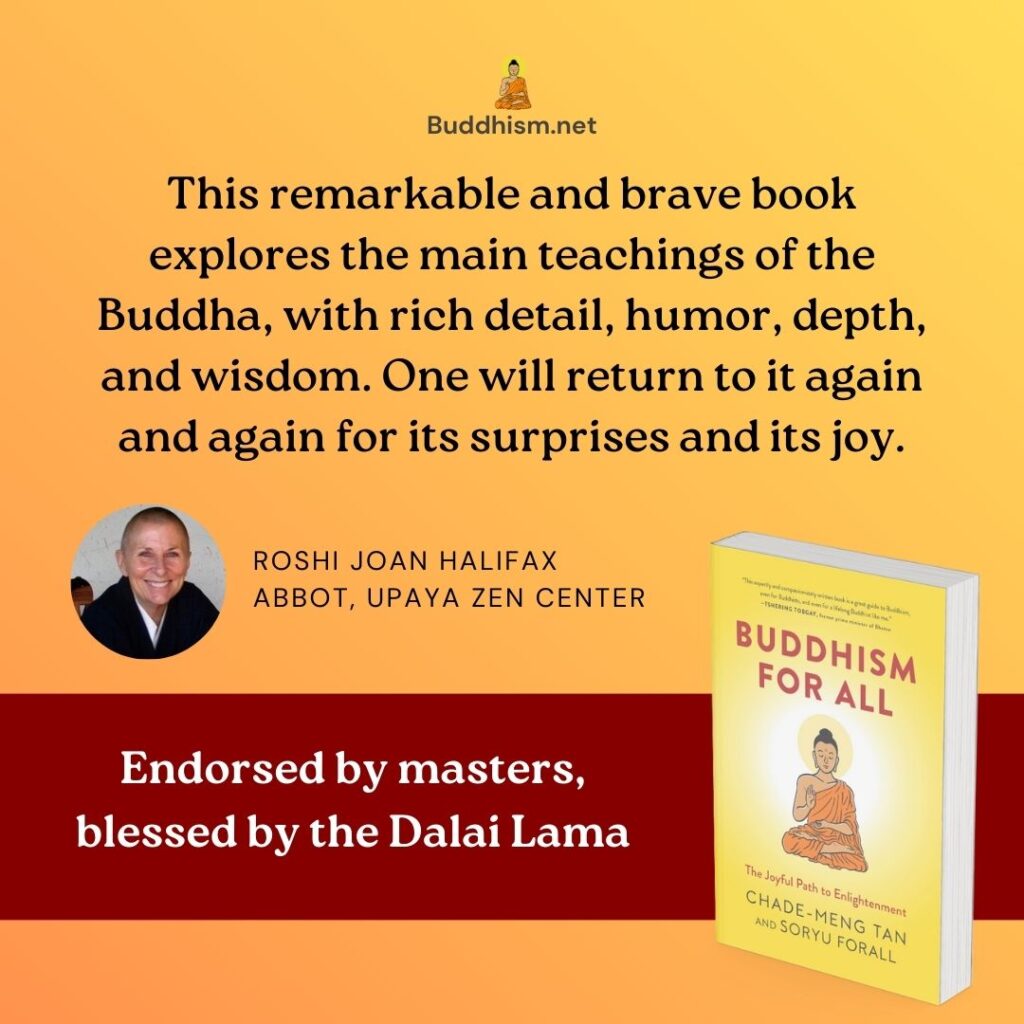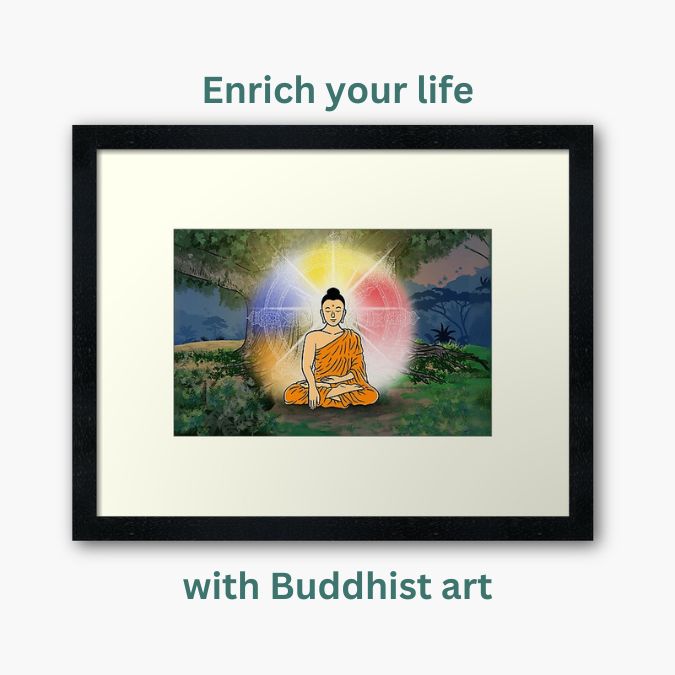(Context: In Buddhism, the gods are merely our friends.)
The religion Brahmanism predates the Buddha. The Buddha was born into a culture in which a certain group of priests, the Brahmans, believed in and worshiped Brahmā as the Creator God, and they were in the process of spreading this doctrine to others. How does the Buddha account for their belief? The Buddha’s explanation was one of the first things I read as a young man exploring Buddhism, and my jaw dropped.
First, the cosmology — Buddhist texts assume the existence of multiple realms (universes?) that exist alongside each other. Each realm has a life cycle: a realm comes into existence, and then it expands, and eventually it contracts, and then it no longer exists. Each heaven is a realm. This cosmology, or some version of it, almost certainly predates Buddhism.
Here, the Buddha was explaining why some teachers taught that Brahmā created everything in a famous long discourse called the Brahmajāla Sutta (Discourse on the Supreme Net),[1] where the Buddha addresses sixty-two wrong views in one go. He tells this story that begins in the “realm of streaming radiance”. Beings with great virtue in their past lives are reborn there as gods. They are mind-made (i.e., they have no physical bodies), joyful, self-luminous, and glorious. As that realm expands, an empty “Palace of Brahmā” (presumably a subrealm) appears.
One particular being with amazing karma due to his many lifetimes of wonderful virtue passed away and became the first to be reborn in this subrealm of “Palace of Brahmā”. He was Great Brahmā. There, he dwelled glorious for a long time, but he got lonely, and wished for other beings to exist. After a while, other beings with amazing virtue and past karma passed away and were reborn in Great Brahmā’s realm. Great Brahmā thought to himself, “I wished for them to exist, and now they exist, I must have created them. I am Brahmā, the Great Brahmā, the Undefeated, the Champion, the Universal Seer, the Wielder of Power, the Lord God, the Maker, the Author, the Best, the Begetter, the Controller, the Father of those who have been born and those yet to be born.” And all those new gods thought, “Wow, Great Brahmā wished for us to exist, and now we exist, he must have created us. He is Brahmā, the Great Brahmā, the Undefeated, the Champion, … etc etc …, the Father of those who have been born and those yet to be born.”
After a long time, one of those gods passed away from Great Brahmā’s realm and was reborn as a human being. He practiced meditation and became accomplished at it, but he could only remember one previous lifetime, and he remembered being in the presence of Great Brahmā and that Great Brahmā “created” him. Thus he started teaching that Great Brahmā created everything, and this was how we ended up with those beliefs, even though they were based on misunderstanding.

“Please stop referring to the Brahmajāla Sutta as ‘Into The Brahma-verse’.”
Relating to that is a joke the Buddha made. The Buddha met a group of ascetics who believed in a creator God but also believed in clearing up their past bad karma by subjecting themselves to intense physical pain. The Buddha joked that, by their flawed argument, those ascetics giving themselves so much suffering must have been created by a “bad god”, while fully enlightened ones who were always happy must have been created by an “excellent god”.[2]
Activities:
- Reflect on this post with Angela:
- I used to ask questions like “what is my life purpose?”. That is perhaps one of the reasons why I became a life coach. However, after I learnt the teachings of Buddhism, I realized that questions like “who am I?” and “what is my life purpose?” are not as useful to contemplate. Instead, what was truly more beneficial for me was to examine the nature of suffering, the nature of mind; and to practice the path as the Buddha taught.
- Reflect on your own life. To what extent are you suffering, or experiencing dissatisfaction or unsatisfactoriness in your life.
- Imagine if you have understood the nature of your suffering, and you have a way to free yourself from suffering – what would that be like?
- What stood out to you from this article? Why?
References:
[1] Dīgha Nikāya 1.
[2] Majjhima Nikāya 101. Specifically, the Buddha joked, “If beings experience pleasure and pain based on the creative act of a supreme God, then obviously [those ascetics] have been created by a bad God … While the Tathāgata obviously has been created by an excellent supreme God, which is why he now feels such pleasure free from defilement.”
Artwork by Colin Goh.


